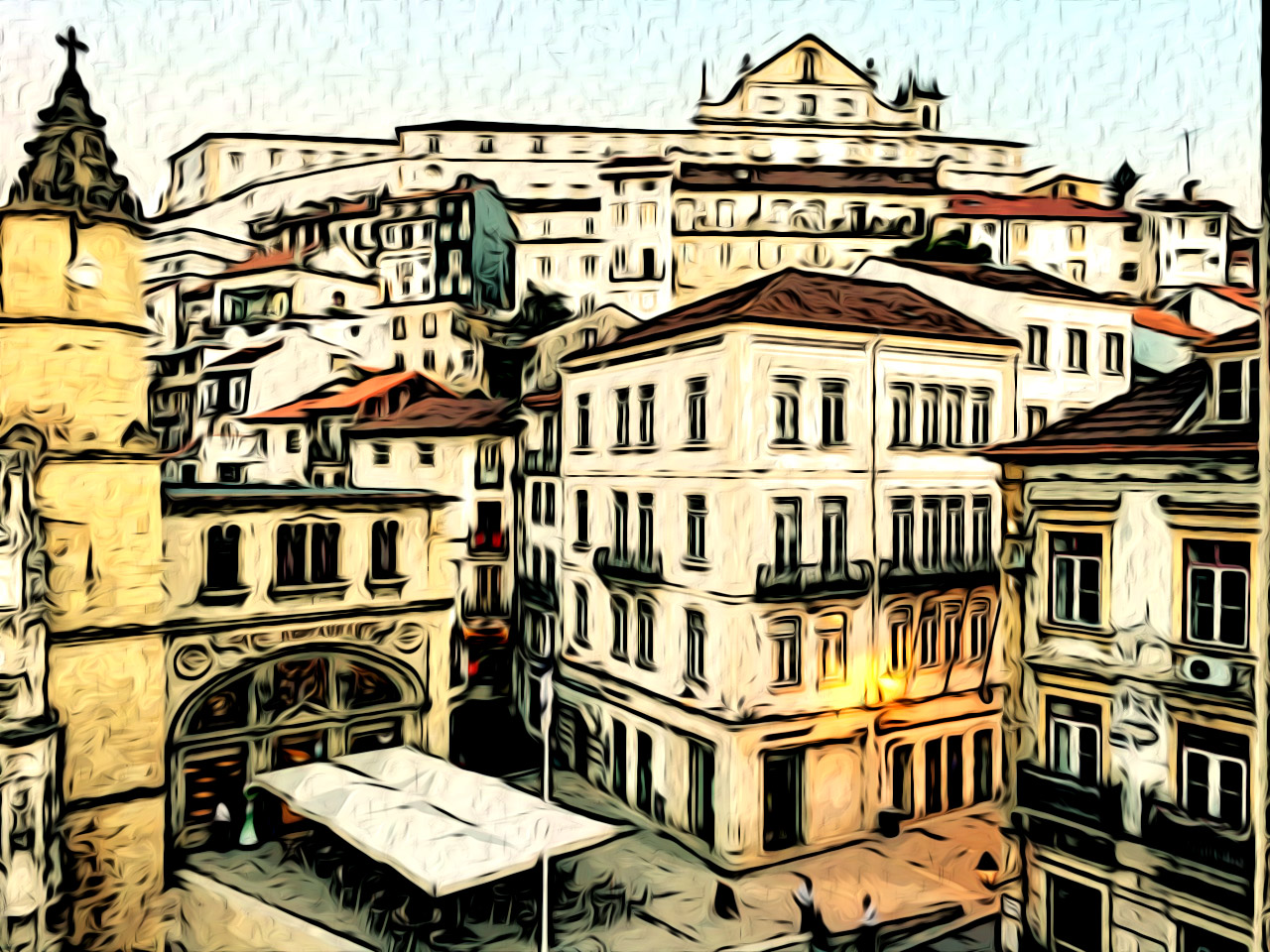Portugal is a perfect destination for retirees thanks to the various benefits it offers. There is almost constant sunshine, stunning landscapes and coastlines, delicious food, and a strong healthcare system.
Lifestyle in Portugal
You should expect to find a slow pace of life in Portugal. No rushing. People start the day late and end it early. You can see that people enjoy their life more this way. Portuguese people are also known for their welcoming hospitality.
As a result of this slow pace of life, bureaucratic work also takes a long time. So, you need to prepare yourself for this lifestyle.
You should also note that crime rates are quite low. It even ranks as the third safest country in the world, according to the Global Peace Index 2020.
Weather
The weather is sunny almost throughout the year in Portugal. It has a Mediterranean climate, so you can enjoy the mild weather and sunshine.
Health Care
SNS (Servico Nacional de Saude) is the National Health Service in Portugal. It provides healthcare services to Portuguese citizens and residents in Portugal. Usually, SNS is free for citizens and residents. However, some conditions may require certain fees as well. You can benefit from this service in hospitals, local health units, and community health centers. Generally, the national healthcare system includes basic health needs, accidents, and illnesses. In some rural or suburban areas, these services may be limited.
Public hospitals in Portugal are quite modern and well-equipped. You usually don’t need to worry about communication in these hospitals. Both public and private health institutions provide English-speaking staff.
Retirees from EU countries can access SNS freely. An S1 form is necessary for this. EU-citizen retirees can obtain their forms from the pension center in their country of origin. Alternatively, private health insurance is also available.
The procedure is slightly different for non-EU citizens or US citizens. They need to become permanent residents to benefit from free healthcare in Portugal. Because of this, for the first five years of residence, they have to pay for private health insurance and health services. It is also necessary to provide health insurance documents before the residence application. You can later change the insurance plan to a Portuguese one.
Language
The official language in Portugal is Portuguese. However, especially in big cities or tourist areas, you can find English-speaking people easily.
Cuisine
Thanks to its location, Portugal offers great Mediterranean tastes. Fresh seafood is a very important part of Portuguese cuisine. You can find different kinds of seafood in many restaurants.
Other than seafood, many vegetables and fruits are organic and fresh in Portugal. So, you can be sure that you are able to maintain a healthy diet.
Various types of bread and desserts are available in Portugal as well. Broa and bolo lêvedo are some of the most famous bread types in Portugal. Pastéis de Nata is a well-known dessert that is actually Portuguese custard tarts.
Cost of Living in Portugal
In most basic costs, Portugal fares quite well compared to other Western European countries. The cost of living in Portugal is 31% lower than in the UK, and 30% less than in the US. Property prices in Portugal are affordable enough to buy real estate as well.
For a couple, approximately €2,000 a month will be enough to live a comfortable life in Portugal. Around half of this budget is for accommodation costs. The other half is for utility costs and basic leisure activities.
It is also advisable for foreign retirees to reserve around three months of living costs. This will be useful in case of a change of exchange rate against your currency.
Retirement Visa
There is no specific type of retirement visa in Portugal. So, the visa you need varies depending on your country of origin. Most people wishing to retire in Portugal apply for a Type 1 Visa. You can obtain it from any Portuguese consulate abroad. You need to get the visa within three months of moving to the country. Once in the country, you will have six months to apply for a Residence Permit. You can renew it every two years. At the end of five years, you can change it into a permanent residence permit.
As for EU citizens, they can stay in the country for three months. However, if they want to stay more than that, they need to apply for a residence permit at the local town hall, or at an office of the immigration authorities. Also, they have to do it within 30 days of entering the country. They need to show proof of the ability to support themselves. Plus, a valid EU passport. The residence permit is valid for five years.
Portugal Golden Visa
If you’re from a non-EU country, Portugal Golden Visa will make the retirement process easier with many side benefits. Golden Visa is basically a residency by investment program. There are various investment options you can choose from. The most popular option in Portugal is a real estate purchase. For real estate purchases, the price starts from €280,000. A property at this price must be in a low density and a rehabilitation area, and it must be older than 30 years. Another option is buying real estate for €350,000. In this case, it doesn’t need to be in a low-density area. But it must still be older than 30 years and in a rehabilitation area. You also need to renovate the property. Other real estate purchase options are as follows:
- Buying real estate at an amount of €500,000
- If it is in a low-density area, €400,000.
Other investment options include capital transfer to the country, establishing a business by creating at least ten job positions. Capital investment in the arts and heritage sector or investment funds are other alternatives.
When the investment is complete, you can apply for your Golden Visa. Obtaining a Portugal Golden Visa will provide the following immediate benefits:
- Living and working in Portugal
- Visa-free travel to Schengen countries
- Family inclusion
The stay requirement is that within the first two years, you need to spend at least 14 days in Portugal. Then, within the following three years, you need to stay in Portugal for at least 21 days. At the end of five years of successful residency, you can apply for permanent residence and citizenship as well. In the case of citizenship, you’ll have the right to live, work, or study in any EU country. As well as that, you can travel to 186 countries visa-free. Remember that your dependent family members will benefit from all these rights as well.
D7 Visa
It is also known as the passive income visa. It grants residency rights to foreigners in Portugal. Besides retirees, freelancers and remote workers can benefit from this visa type.
To obtain this visa, you must prove that you earn the minimum required amount of income regularly. This is to show that you can live in Portugal with this amount. The minimum monthly income needs to be at least equal to the Portuguese minimum wage. The income can be from pension, investments, real estate rentals, or any other type of income.
Another requirement of the D7 Visa is spending a minimum of six consecutive or eight non-consecutive months in Portugal each year.
Through this visa, you will have access to the National Healthcare Service, and the National Education Service. You can also work in Portugal as an independent professional. Portuguese Vocational schooling is another right you can benefit from, with your family.
It is important to note that you must show proof of accommodation while you apply for a D7 visa. You can either buy or rent a property.
Moving Retirement Funds, Pensions, and Social Security to Portugal
For EU citizens, the transfer of their contributions from the EU country they worked in is easy. The contributions being transferred count towards your state pension in Portugal.
Many non-EU countries signed tax and social security arrangements with Portugal. So, if you are a non-EU citizen, you should check with the state pension service in your country of employment. This is advisable to learn whether you can transfer it to Portugal or not.
In Portugal, the retirement age is 66 years and 5 months for everyone. Residents can claim a contribution-based state pension if they paid at least 15 years of social security contributions under Portuguese employment. Alternatively, private company pensions are also available and popular in Portugal.
Inheritance Implications for Retirees in Portugal
In Portugal, there is no inheritance tax on real estate property. But, stamp duty is payable at a flat rate of 10%. Spouses, descendants, and ascendants are exempt from the tax if not stated otherwise. However, there are some small fees regarding the inheritance process.
The Portuguese Civic Code states that any inheritance process shall be governed by the laws of the home country of the deceased. If the two spouses are from different countries, and if the remaining spouse has a permanent residence in Portugal, then Portuguese law may apply. You can avoid this by noting it in your will. It may also be a good idea to prepare a separate will in both countries. It is always better to consult a professional on these issues though.
The Portuguese inheritance law states that legitimate heirs receive a portion of the estate. Legitimate heirs include spouse, biological and adopted descendants, and ascendants of the deceased. If specified in the will, it can be managed as written.
Retirement Property in Portugal
As stated above, the cost of properties is very affordable considering the average in Europe. This is why many expats buy property instead of renting it. The costs depend basically on the location, type, and size of the property.
Buying a Property
You need to obtain a Personal Fiscal Number (Numero fiscal de contribuinte) to buy property in Portugal. You can get this number from your local tax office. When you choose to open a bank account, the country will directly assign you a Personal Fiscal Number.
After you find the suitable property, it is advisable to hire a solicitor. You make an offer, and following its approval, the notary reviews it. Then you sign the contract and pay the necessary fees. Then, the process is complete. As stated, hiring a solicitor will make this process easier and will not allow any inconvenience.
Property Market
The property market in Portugal is very promising, and an increasing number of investors buy properties in Portugal. Also, various types of properties are available. So, you can find the one which suits you best.
You should also note that the interest in the property market especially in Lisbon and Porto is very high. This is why the country is planning to stop the property purchase in these cities for Golden Visa.
Cost of Real Estate
You should note that property prices are high in main cities. The location and the age and type of the house are also other determining factors. Let’s look at two different cities.
The rental fee of a single family unit in Algarve will be between around €550-€1,000 per month. The rent of a rental apartment in Lisbon will be between around €800-€2,000. per month.
If you want to buy a property in central Lisbon, the square meter price can be between €3,000 and €10,000. If you decide to go to suburban areas, you’ll see that the price will be half the range mentioned above.
In the Algarve region, the square meter prices are between €1,000 and €5,000 Euro.
The Best Places to Retire in Portugal
Portugal offers different charms for different people. In some parts of the country, you can find beaches, in another part, you will find great mountainous areas. In short, the country speaks to all sorts of tastes in terms of its geography. So, finding the best place to retire will depend on your interests. To get an idea, you can look at some cities listed below.
The Algarve
Recently, Forbes magazine has rated Algarve one of the best places to retire in Europe. So, you’ll find lots of foreign retirees in this area. This way, you’ll easily communicate with the people around you.
Algarve is also well-known for its great beaches and golf courses. The area is quite affordable. As in most of Portugal, sunny weather will always be with you.
It is in the south of Portugal, and includes lots of towns. The popular ones are, Faro, Lagoa, Albufeira, and Tavira. They are mainly coastal areas. If you want to look at inland areas, you may search for Alvor and Silves as well.
Porto
Located in the north, Porto is the second-largest city in Portugal. You can find different sorts of activities in this city. Many people find the city slightly traditional as well.
The weather, however, is not as sunny as it is in the Algarve. It often has a gloomy and cloudy outlook with wet winters.
Lisbon
It is the capital city of Portugal. Foreigners are attracted to this city for different reasons. Some of them visit here for tourist purposes. Some visit to study, or work. Some others to retire as well. It is a lively city with its many and varied neighborhoods. It is also a bit more crowded compared to other parts of the country.
Cascais
Cascais is very close to Lisbon. It is only half an hour ride away. Located by the ocean, it offers awesome beaches and perfect views. Besides these beauties, Cascais is quite close to the Lisbon airport, and the city life as well.
The public services are also developed enough in this town. Although the property prices are on the rise, they are still less than the ones in Lisbon.
Taxation for Retirees in Portugal
Normally, residents in Portugal are subject to taxation on their worldwide income. So, your foreign pension can be subject to taxation in Portugal as well. However, there is a scheme called NHR(Non-Habitual Residency). Let’s look at it in the next section.
NHR Program
Through the NHR (Non-Habitual Residency) program, you can reduce the normal taxation of your income in Portugal. As a retiree, if you apply for the NHR, your foreign pension income will be taxed at 10% for a duration of ten years. To be eligible for this, you
- Must have a right to residency in Portugal, and
- Must not have been a tax resident in Portugal for the last five years.
Along with this, you will also be exempt from most of the income you gain abroad.
Verdict: Should You Retire in Portugal?
You can definitely retire in Portugal where you can live comfortably at a low cost. You can also save from your taxes for ten years. Aside from the monetary aspect, it offers a great landscape and constant sunshine to its people. You can also find English-speaking people in each area of life in Portugal.
FAQ
What income tax do you pay as an expat in Portugal?
Anyone who spends at least 183 days in Portugal is a tax resident. Tax residents are subject to taxation on their worldwide income. They can be salaries, rental income, capital gains or dividends. If you reside in Portugal but are not a tax resident, you are only subject to taxation on your Portuguese income.
As an expat, if you are a tax resident but want to be exempt from most of your foreign income, you can apply for the NHR scheme. In this way, only the income gained in Portugal will be taxed.
Are expats and foreigners welcome in Portugal?
They are definitely welcome in Portugal. In fact, Portugal tries to attract more foreigners each day through the tax regulations and incentive investment options.
Is the Golden Visa program suitable for retirees in Portugal?
Portugal Golden Visa program is suitable for foreigners in terms of its benefits. They can obtain residency and citizenship much easier than the usual ways. They will also benefit from tax breaks and tax reductions.
What are the Laws and Taxes Applied for Retirees in Portugal?
NHR (Non-Habitual Residence) scheme is one of the regulations applied for retirees.
How does the cost of living in Portugal compare to the U.S.?
According to numbeo.com, the cost of living in Portugal is 30% less than it is in the US.
How did you choose Portugal as your retirement destination?
The serenity and the slow pace of life, combined with a perfect landscape and welcoming people. Even these are enough to want to live in Portugal.
Who can retire in Portugal: Visas and Residence Permits
Both EU and non-EU citizens can retire in Portugal. The process is easier for EU citizens. They can easily apply for residence permit in any office of the Portuguese Immigration Office or SEF. Non-EU citizens, however, need to apply for a residency permit before coming to Portugal. Also, they need to provide additional documents as well. However, through the Portugal Golden Visa, non-EU citizens can easily obtain their residence permit in Portugal.
Do a lot of expats live in Portugal?
Yes, the number of expats in Portugal is increasing day by day.
Read the Guide on Europe’s Most Popular Residency Program Portugal Golden Visa






